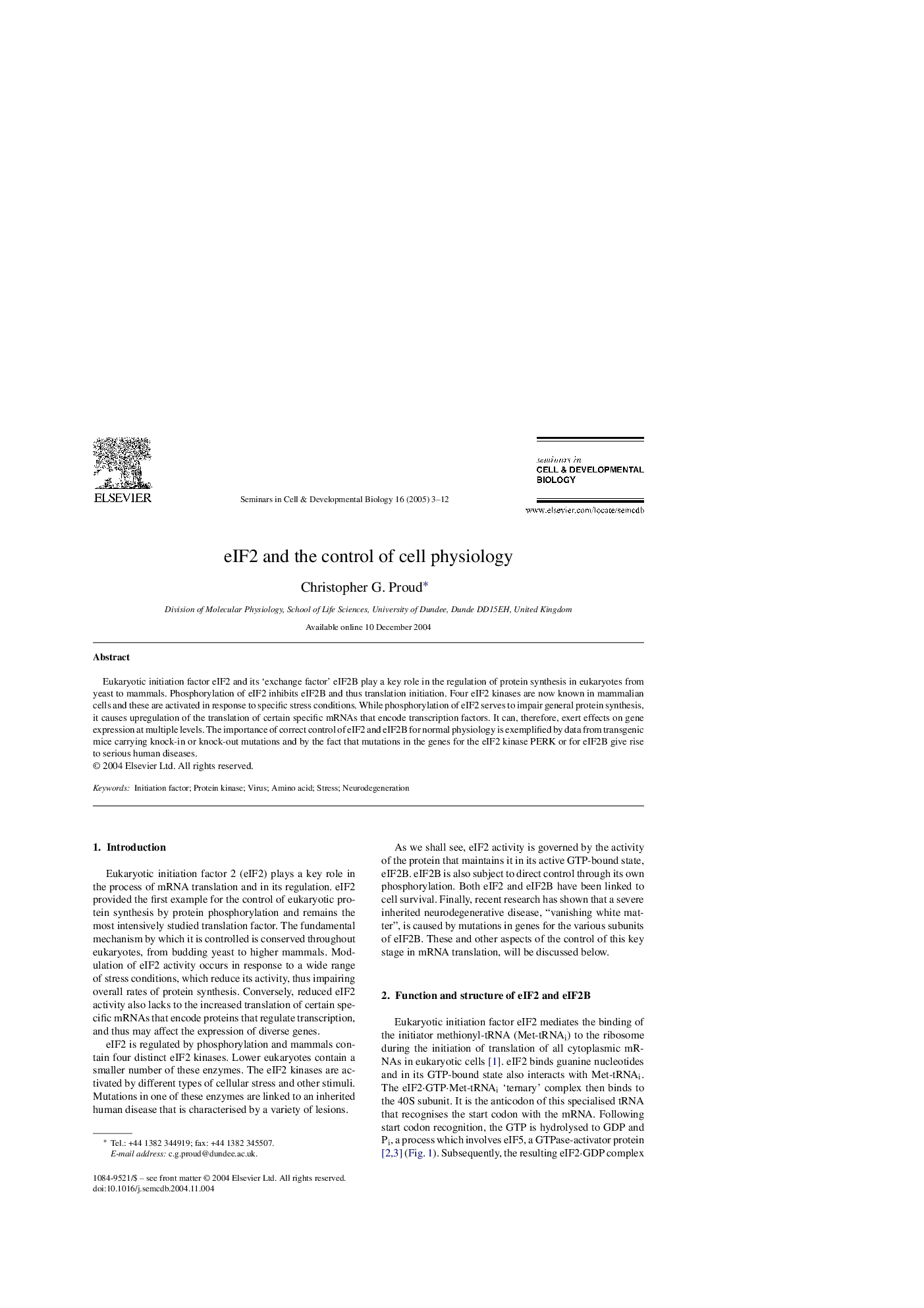| Article ID | Journal | Published Year | Pages | File Type |
|---|---|---|---|---|
| 10959575 | Seminars in Cell & Developmental Biology | 2005 | 10 Pages |
Abstract
Eukaryotic initiation factor eIF2 and its 'exchange factor' eIF2B play a key role in the regulation of protein synthesis in eukaryotes from yeast to mammals. Phosphorylation of eIF2 inhibits eIF2B and thus translation initiation. Four eIF2 kinases are now known in mammalian cells and these are activated in response to specific stress conditions. While phosphorylation of eIF2 serves to impair general protein synthesis, it causes upregulation of the translation of certain specific mRNAs that encode transcription factors. It can, therefore, exert effects on gene expression at multiple levels. The importance of correct control of eIF2 and eIF2B for normal physiology is exemplified by data from transgenic mice carrying knock-in or knock-out mutations and by the fact that mutations in the genes for the eIF2 kinase PERK or for eIF2B give rise to serious human diseases.
Related Topics
Life Sciences
Biochemistry, Genetics and Molecular Biology
Cell Biology
Authors
Christopher G. Proud,
